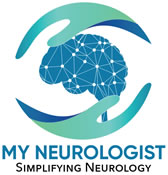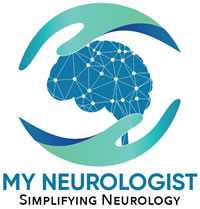In some ways, the act of defecation is similar to urination. Instead of bladder, stool is collected in the large colon, until it comes in the rectum when the reflex of defecation starts with an urge to defecate. A person may suppress this urge to an appropriate time, and to a certain extent. For rectum and colon to empty, the internal and external sphincter muscles around the lower end of colon are relaxed, and the colon goes into a spasm, emptying its contents.
The most common form or lower bowel or lower GI (gastrointestinal) dysfunction is constipation.
Are there nerves in the gut?
Gut or the gastrointestinal tract (GI tract) has extensive innervation. Following are some parts of the this nervous system:
Myenteric or Auerbach plexus: Interconnected neurons all along the gut from esophagus to the rectum, localized in the smooth muscle layers of the gut. Present within are special cells called interstitial cells of Cajal. This system is primarily responsible for peristaltic movements of the gut, with proximal contraction and distal relaxation. This system is mostly automatic, and is only indirectly controlled by the autonomic nervous system.
Interstitial cells of Cajal (the pacemaker cells): These are specialized cells that provide control over peristaltic movements of the gut. They provide electrical stimulation for muscle contraction.
Submucosal or Meissner plexus: Another layer of neurons in the submucosal layer of the gut. They help with overall functioning of the gut and its peristaltic movements.
Enteric nervous system: The whole of gut has extensive nervous system, including the Myenteric and submucoal plexuses, which are connected to the vagus nerve, and ultimately to the spinal cord, and the brain stem. Some nerves in the pelvis also innervate the gut. This is called enteric nervous system, and it can function on its own, but there is indirect control through the autonomic nervous system.
What is a peristaltic reflex?
Peristalsis is the name for the type of movements in the gut. This happens when the one area of the gut contracts, and the areas distal to it relax, resulting in movement of the food material (in the stomach and small intestine), or the feces (in the colon and rectum) downward. This movement is a local reflex that can be triggered mechanically, by collection of certain amount of feces in the rectum, or local mechanical stimulation, or by certain chemicals.
Does the brain control defecation?
Defecation is mostly a reflex function, with automatic local control in the gut. Brain only has limited and indirect control. The external anal sphincter has voluntary muscles and can be used to contract and inhibit defecation, through messages from the frontal lobe of brain, at least for some time. Other than that, we use our brain to decide the appropriate time to pass bowels. This control is not developed in an infant, or is defective due to trauma or severe dementia, resulting in fecal incontinence. Following is a short list of problem that can occur due to a problem in different parts of the nervous system:
A: Problem in the brain: Injury to frontal lobes of brain may result in voluntary control of defecation, and the patient’s inability to inhibit the peristaltic reflex once it starts. This may result in incontinence.
B: Problem in the spinal cord: Similar to the brain, problems in the brain can also affect bowel functions, resulting both in constipation and loss of bowel control. It can be from trauma, stroke, MS, or degeneration of neurons. In Multiple System Atrophy, the problem is localized to the lowest part of the spinal cord.
C: Problem with nerve roots and plexus: Usually due to infection, cancer, or trauma. It can cause loss of bowel control.
D: Problem with peripheral nerves: Severe autonomic neuropathy (e.g., from diabetes) may also cause constipation, diarrhea, and loss of bowel control.
E: Problem with Myenteric and sub-mucosal plexuses: Numerous conditions may impact this part of the nervous system, resulting in loss of peristaltic activity, which may lead to constipation. It is a common problem in Parkinson disease, and some parkinsonian disorders, such as Lewy Body dementia. It is possible that the degenerative disease process in patients with dementia with Lewy Bodies starts in the gut, and then spreads to the brain. In this manner, unexplained constipation may occur a few years before any clinical signs of dementia.
How to treat constipation due to neurological causes?
The treatment protocol is similar to any other cause. Following measures can help:
- Review all meds to remove meds that may be contributing to constipation.
- Avoid dehydration.
- Increase fiber intake with higher consumption of fruits and vegetables
- Exercise regularly
- Regular use of yogurt or probiotics
- If all measures fail, medicines may be needed. Following are the meds for constipation:
Bulking agents: A bulking agent increases the bulk of fecal material and helps avoid constipation. Common agents are psyllium, polyethylene glycol 3350, and polycarbophil.
Fecal softening agent: Such as lubiprostone (Amitiza), linaclotide (Linzess), elobixibat , or magnesium.
Pro-kinetic agents: Serotonergic (mosapride, tegaserod [Zelnorm], and cholinergics (nizatidine [Axid]), and a variety of herbal meds.
Where can I get more information about constipation?
American Gastroenterological Association


Leave a Reply
Your email is safe with us.
You must be logged in to post a comment.